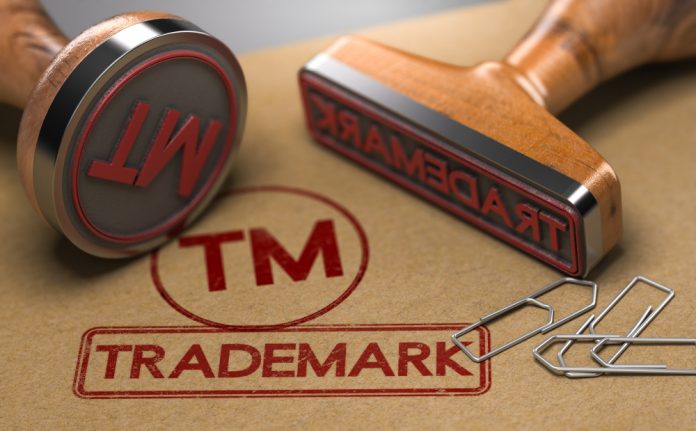This article has been written by Shruti Tendulkar, pursuing the Certificate Course in Trademark Licensing, Prosecution and Litigation from LawSikho.
Table of Contents
Introduction
Voice-search is largely a sophisticated technology that uses voice-enabled commands rather than the regular typing-keypad to hold out the groundwork on the online browser, mobile phones, etc. It primarily means a technology used instead of a keyword tab with the help of voice to fetch any data on the web. Google Voice search, Siri, Alexa are some examples of voice assistants that carry out voice searches.
In the past few years, technology has advanced vastly and as we have just stepped in 2020, the utilization of voice search is predicted to be an all-time high as more corporations and consumers target mobility and automation. Several consumers are using voice for searching jobs, shopping, making enquiries, finding food deliveries and so on. In short, it is a search by voice in which the technology uses an audio recognition system to depict and understand what the speaker is saying.
Now the question arises whether or not there’s any interaction between AI and trademark law. Yes, however, the interplay between AI and trademark law may appear less straightforward. If Alexa, (Amazon’s artificial intelligence) is asked, how ‘she’ works, she would reply, “Lots of people have worked hard to teach me, and I am still learning more.” She never changes her response, the way in which Alexa or let’s say all voice searching assistants work will certainly have a practical impact on the law of trademarks future functioning.
Voice search technology and trademark law
Voice search/ AI assistant impacts our day to day life. The method of shopping for products has been modified. Earlier we used to buy products from the shop and the shopkeeper was the sole filter between. He was the one who had knowledge about our demands and choice and had the knowledge of the product as well. With the changing time, this scenario has also changed. This mode of buying product was replaced by the modern supermarket and malls, where the consumer made the decision alone and there was no filter. Eventually, due to the increasing prominence in product branding, the consumer gained extra data from direct brands.
This structure is changing again, with the introduction of AI assistance. With the introduction of AI applications, the purchasing process has reverted back to the old model in several methods, with some important differences. The use of AI is still limited but maximum consumers must have used some form of AI assistant, such as the product recommendation system appearing on Amazon.com. Here, the voice searching assistant plays the role of a filter. It is the node between the buyers and the brand, and it makes unique recommendations to the consumer on the basic algorithms of their past purchase history. And hence it is considered that AI assistant will have an important impact on who is considered to be the “average consumer” in trademark infringement proceedings.
This will affect the Trademark law as it is concerned with the purchasing process, and also the interaction between the consumer and the product. And this process is affected by the information provided to the customers through AI assistant as it will have an impact on the data available to consumers which will ultimately change their purchasing decisions.
The probable issues and challenges
The rise in the voice search/AI assistance has brought several problems and challenges to trademark law along with it.
Phonetic impact- With the increase of voice searching assistants as well as online purchasing, there will be a rise in the importance related to the phonetic aspects of trademarks, and this will push the responsibility of accurate searching on the buyers. While comparing trademarks and conducting a trademark search, we look into the analytical framework for comparison, i.e. their phonetic, visual and conceptual impact. Traditionally, the impact of one form of comparison like visual over other form has always increased and decreased, and with this current shift to voice searching, the phonetic comparison will gain more importance over the other forms. As in the process of voice search mostly all of the product or service searching is carried out by the voice assistant and hence the visual and conceptual impact will be considerably reduced in this process.
Such dominance on the phonetics of a trademark can cause fewer instances of typo-squatting as fewer individuals will depend on the traditional method of typing and these consumers will not actually type the brand name into a search engine. Ultimately, the people responsible for such squatting may cease to bother registering similar domains.
Shift in the trademark law- voice searching/AI assistance will bring a shift within the trademark law. In times of yore, products were purchased in shops with the assistance of the shopkeeper; then there was a shift to a self-service model where supermarkets and malls were introduced where while buying the products the likelihood of confusion for consumers increased; today, the internet revolution and AI assistance have had major impacts on how consumers interact with brands. Eventually, law concerning the liability of AI and infringement and a new legal test for the same shall be needed; as we see a necessity to gather the information related to who is actually making the purchasing decision. Due to the use of voice search/ AI some traditional concepts of trademark law will become useless. While the law might have changed and adapted with these changes but there have not been any considerable changes in terms of the legal principles concerning trademark law.
Emphasis on human psychological processes- Trademark law engages with consumers on a psychological level too. The standard notions like “average consumer”, “likelihood of confusion” or “imperfect recollection” were developed solely after considering and on the concept of cognitive processes and additionally the psychological impact of certain visual, phonetic and conceptual responses.
While elaborating on this process, the Court of Justice of the European Union has taken into thought these human responses. It has stressed on the human mind, impression and perception of an average consumer, to varying levels of human attention, associations, habits, assumptions and similar.
As mentioned earlier, the functions of Trademark include a cognitive process as well. The use of Voice searching/ AI assistance impacts this human cognitive process as Humans are influenced by Voice searching/AI assistance while buying products.
Limited the effectiveness of the brand- The voice searching technology is also impacting the purchasing. With the expansion of voice assistants like Siri, Alexa and Google Assistant the consumers are mostly using such AI to perform their tasks with their voice. This will have an effect on trademark law. The use of voice searching assistants as a medium for the buyers to interact with brands and buy products and services raises even more questions from a trademark law angle.
The increasing use of voice searching assistants means that we are not using any keywords or domain names while searching for any products or services online. This voice searching assistant can showcase us products based on the algorithms of consumer’s likes and dislikes and needs, and eventually the AI assistant will start showing instructions and products based on such specific searched filters such as colour, size, location, and speed of delivery as opposed to brand names. A buyer or consumer can ask for “Black mobile phones below INR 15,000/-” instead of a particular brand, and the voice searching assistant, may ultimately choose and order the product. The power of choosing a product will ultimately shift from consumer to the AI assistant in this process and this will limit the effectiveness of the brand as an identifier.
Re-define Trademark Law- It is clear that voice searching/AI are increasingly forming the link between buyers and products. And therefore several questions arise like what happens if the perception of an average consumer is irrelevant? Is there a need to re-define the average consumer while considering a likelihood of confusion between two brands?
As per Trademark law, the average consumer means a person who is “reasonably observant and reasonably well informed”. This definition also allows for the obvious mistakes in human perception to a certain extent. Mostly humans do not have a photogenic memory and hence cannot recollect the exact visual details of a mark, but instead can remember such signs on the basis of their particular impression or some general detail. Human brain cannot remember or recollect exact details, it varies but the AI assistants can remember every detail specifically, and as they have become the filter between the brands and the consumers and as the power of choosing the products is shifted from consumers to these assistants, have the also taken the role of average consumers from a trademark law perspective?
The law must be changed to recognize the “artificial consumer” and amendment of certain concepts such as average consumer, imperfect recollection and conceptual comparisons must be made.
Conclusion
The rise in voice search is going to affect the Trademark law in many ways. We might need to redefine many aspects of the law. Technology is changing and advancing, and hence the laws should also run in parallel with these changes. The issues relating to aspects of ‘average consumer’, infringement, the likelihood of confusion, etc. needs to be looked after to bring the Trademark law consonance with the Voice searching assistant.
LawSikho has created a telegram group for exchanging legal knowledge, referrals and various opportunities. You can click on this link and join:
 Serato DJ Crack 2025Serato DJ PRO Crack
Serato DJ Crack 2025Serato DJ PRO Crack










 Allow notifications
Allow notifications


